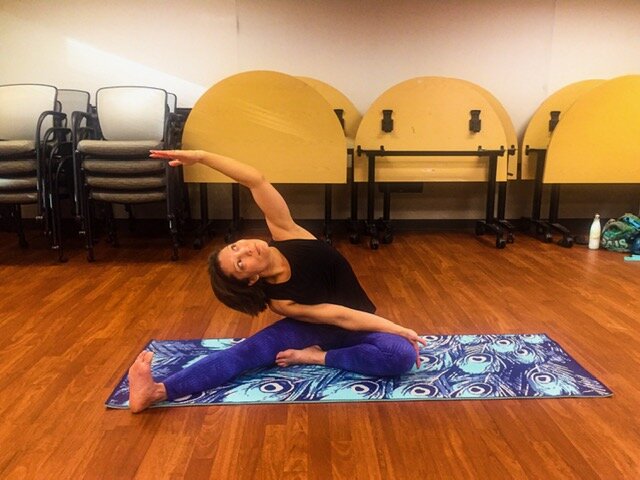Leaning Into Curiosity In These Uncertain Times
/This month my theme is fear, and while I didn’t intend to talk about it from the angle of COVID19 and the far reaching effects of what’s going on in our world right now, sometimes life throws you curve balls, and you change tactics. If I’m going to be totally honest, since we’re talking about fear, I’ll make a “confession”: curve balls are one of my biggest fears. (It’s probably obvious, but I’m talking about my fear of figurative curve balls here, not the baseball variety). I don’t like uncertainty. I’m a type A planner. I run a travel planning company, so I’ve literally made a living of planning. I have a Master’s in Marketing. Marketers plan stuff out. It’s also my general personality. I’m the type of person that likes to always know the next steps, and someone who always likes to be planning the next thing. When it boils down to it, I’m terrified of a lack of control.
I think this is the case for a lot of people, but for me, much of it comes from my chronic illnesses. I have a rapid mood cycling disorder called rapid cycling cyclothymia, which means that my moods can cycle between depression, hypomania, and “regular mood” (i.e. neither of the formers) as infrequently as every week or two, or as frequently as every few hours. When you literally feel like you have no idea what your brain is going to do in the next few hours and how it’s going to throw off your emotions, your attention span, your feelings about yourself (depression is not kind to self esteem, self worth, self confidence), it can be scary. In addition, I suffer from other chronic illnesses such as Migraine, arthritis, and GI issues that can flare up at any time. When your internal world, including your brain, often feel so uncertain and outside of your control, it can make that need for control of external circumstances feel even more crucial.
And yet right now, I am having to face that lack of control head on. (To be clear, we can’t actually ever control things outside of ourselves, especially other people, but often it feels like we at least have a little say in how things in our life work). Things have been changing daily, often hourly, and we’re having to acknowledge that we don’t know what lies ahead. Right now, things might be closed for two weeks. But that could change. It could be double that. It could be months. We don’t know. While I don’t currently work full time in either travel planning or yoga, these are both parts of my life and my livelihood. And yet I’m having to adjust. I cannot in good conscience encourage my clients to make new travel plans right now (I do almost exclusively overseas travel, much of it to Europe, so that’s more or less at a halt). I have cancelled my weekly Benefit Yoga Class for the next couple of weeks, because the health and safety of my participants and their loved ones (and my loved ones) is more important than the money I make from that, of course. And yet obviously, all of this affects my income, and our household income, and I have to adjust there. And we have no real idea how the course of things will go, how long these cancellations and changes to life and livelihood will last, or what the next change will be.
And I’ll be honest, all of this uncertainty is anxiety inducing. I’m not good with constant change, with not knowing how things will be one day to the next. My already anxious and cycling brain does not like it one bit. And of course, I’m controlling what I can by cancelling the classes and events I have the power to cancel, staying home unless necessary, finding other ways to connect with the people I care about. But I cannot control it all. So instead I’m leaning in to curiosity where I can. I’m curious to see how we’re able to be creative at my day job to get things done while working from home. It’s requiring lots of teamwork, and that’s actually really cool - different departments pulling together to make this all happen. In my yoga work, I’m exploring the idea of doing photo series of poses and flows that people can put together to create their own practice at home. I’m even considering videos, which truthfully terrifies me. But it’s forcing me to step out of my comfort zone and explore these options to help my students to develop a home practice, and to maybe help others to get some needed movement and stress relief/mindfulness. I’m learning, ever so slowly, to take things a day or two at a time. To have my main plan, and then some backup options in case the main plan doesn’t work out (even backup plans are tough for me, as I’m usually so set on my main plan). And I’m learning to acknowledge that even the back up to the back up plan may have to go out the window and I may end up in uncharted territory.
Is it my ideal? Not at all. Primarily because a global pandemic that puts people’s lives at risk is obviously never something I’d want, no matter how many lessons it teaches me. But I am learning a lot about myself in this. I’m learning what I, and so many others, are capable of (way more than we often think). So little by little, I’m being curious where I can, working to lean into the uncertainty instead of bristle against it and produce even further anxiety. It is the ultimate practice in the yama of Aparigraha, or letting go.



